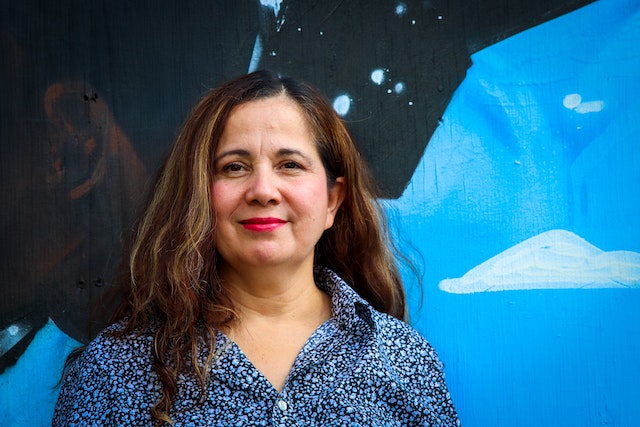“Are you out of your mind?” At one point in time, you’ve been asked this question. And while this may seem very cliche, it’s the reason many people are seeking the right mental support. It’s easy to get overwhelmed and confused about who to talk to – and it shouldn’t be so hard to find someone to talk to!
Psychologist? Psychotherapist? Psychiatrist? Counsellor? These terms have often been used interchangeably, but they mean different things.
If you need counseling in Langley, you need to be specific about what you want. Once you know the difference between a psychologist and psychotherapist, you’ll become more confident about choosing the right support for your needs.
What’s the Difference Between a Psychologist and a RCC (Registered Clinical Counsellor)?
Psychologists and counsellors help people work through emotional, behavioural and mental health challenges but their training and roles are a bit different.
Psychologist
A psychologist is a regulated health professional who has extensive education, usually a doctoral degree (like a Ph.D. or Psy.D.). They are experts in human behaviour, mental processes, and how the mind works.
In Canada, psychologists are licensed to diagnose mental health conditions, conduct formal psychological testing, and offer mental therapy based on evidence for a wide range of conditions.
Counsellors
A counsellor focuses on talk therapy and emotional support. They may have a background in social work, counselling, psychology, or nursing.
In some parts of Canada (such as Ontario), they must be registered with a professional body (e.g. the College of Registered Psychotherapists of Ontario) to legally practise under certain titles.
While counsellors don’t usually diagnose or conduct clinical assessments, they are skilled at helping people navigate emotional challenges, relationship issues, trauma, grief, and more—primarily through therapeutic conversation and support.
Education and Training: How They’re Different
Psychologists complete 6 to 10 years of post-secondary education, including undergraduate studies, postgraduate degrees, clinical placements, internships, and intensive research.
Counsellors also undergo specialised training. Some hold master’s degrees in counselling or therapy, while others complete diploma programs. Their education focuses on therapeutic methods and client interaction.
In short: psychologists often have more diagnostic and research training, while counsellors bring in-depth skills in emotional support and practical therapeutic approaches.
Scope of Practice and Specialties
Psychologists Can:
- Diagnose mental health disorders (e.g., ADHD, anxiety, PTSD)
- Conduct psychological assessments and testing
- Offer therapy using evidence-based approaches (e.g., CBT, DBT)
- Work in hospitals, schools, clinics, or private practice
Counsellors Can:
- Offer talk therapy for emotional and behavioural concerns
- Support with issues like stress, trauma, grief, depression, and relationships
- Use various therapy methods (e.g., narrative therapy, EFT, mindfulness)
- Work in private practice, community clinics, or wellness centres
Neither Can:
- Prescribe medication (this is the role of a psychiatrist or medical doctor)
What About Cost and Insurance?
In Canada, most therapy services aren’t covered by provincial health care plans like OHIP unless you’re receiving treatment in a hospital or a publicly funded clinic.
If you’re seeing a psychologist or counsellor privately, you’ll typically pay out of pocket.
Here’s how they differ in cost:
- Psychologists usually charge more per session (around $160–$225/hour) and are more frequently included in private benefit plans.
- Counsellors tend to charge less (often $100–$160/hour). Some private insurance policies cover their services, but not all—so always check your coverage.
How to Choose: Psychologist or Counsellor?
- If you need a formal diagnosis, psychological testing, or a better understanding of a mental health condition, a psychologist may be more suitable.
- If you’re dealing with stress, transitions, grief, trauma, or need emotional support, a counsellor can be an excellent choice.
Ultimately, it’s not just about titles—it’s about connection. Therapy works best when you feel safe, heard, and understood. Take time to find someone whose approach fits your needs.
Conclusion
Whether you work with a psychologist or a counsellor, what matters most is that you’re seeking support. That’s a huge and positive step.
Accessing mental health care in Canada can sometimes be challenging, but it’s absolutely worth the effort. Think about your needs, explore your options, and don’t hesitate to reach out for a consultation. You deserve support that helps you move forward with confidence and clarity.
FAQs
Can a counsellor diagnose mental health conditions?
No. In most provinces, only psychologists, psychiatrists, or some doctors can provide a formal diagnosis.
Are their services covered by insurance?
Many employer benefit plans cover psychologists. Some also cover registered counsellors, but it varies—check your policy carefully.
Can either one prescribe medication?
No. Only psychiatrists or medical doctors can prescribe medication.
Can both treat anxiety or depression?
Yes. Both psychologists and counsellors use therapy approaches that are effective for anxiety, depression, and emotional challenges. If you need testing or formal assessment, a psychologist may be more appropriate.
Is one better than the other?
Not necessarily. It depends on your situation and what kind of support you’re looking for. Both professionals can be highly effective—it’s about finding the right fit for you.











